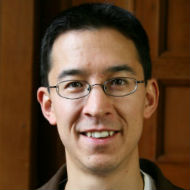Nick Yeung
Sir Jules Thorn Tutorial Fellow in Psychology; Professor of Cognitive Neuroscience

Contact information
Teaching
I teach Univ undergraduates in Experimental Psychology; Psychology, Philosophy and Linguistics (PPL); and Biomedical Sciences. I give tutorials to first year students in these degrees as part of their introductory Psychology and Behaviour courses, and see 2nd and 3rd year students if they choose the options I teach on cognitive psychology and cognitive neuroscience. I enjoy the opportunity to engage in tutorial discussions – to learn how my students think and what their interests are, and to discuss strengths and weaknesses to help each student maximise their learning.
As the study of human thought and behaviour, Psychology is intrinsically interesting. But it presents unique challenges to study as a scientific discipline, both because of the complexity of the subject matter and because we often bring strong intuitions to the subject that are incorrect. Learning how to deal with this complexity, and understand human behaviour with scientific rigour, is perhaps the most valuable transferrable skill that is learnt in a Psychology degree.
In my department, I supervise a number of postgraduate students and am currently the Director of Graduate Studies, overseeing the postgraduate research degree programmes.
Research
I am interested in human thinking and reasoning, and how these processes are implemented in the brain. A current focus of my research is how people evaluate their own thoughts and actions, and use these evaluations to guide their behaviour adaptively. For example, when we make a decision, how do we know when we have enough information to commit to a choice vs. seek further information or advice? Are there systems in the brain that are specifically devoted to this evaluation process?
My research uses a variety of methods to answer questions like these: Studying how people make decisions in carefully-designed lab tasks, recording their brain activity with EEG and fMRI as they do so, and building computer models of these processes.
I am increasingly interested in applying lab research to practical problems. For example, one current project looks at how psychology research can improve medical decision making, in particular for patients and their carers who are being asked make complex decisions, and use more and more complex medical equipment, at home rather than guided by medical professionals. Another project investigates whether we can improve people’s general reasoning skills and intelligence through cognitive training.
Selected Publications
Schiffer AM, Siletti K, Waszak F, Yeung N (2017). Adaptive behaviour and feedback processing integrate experience and instruction in reinforcement learning. NeuroImage, 146, 626-641.
Clayton MS, Yeung N, Cohen Kadosh R (2015). The roles of cortical oscillations in sustained attention. Trends in Cognitive Sciences, 19, 188-195.
Boldt A, Yeung N (2015). Shared neural markers of decision confidence and error detection. Journal of Neuroscience, 35, 3478-3484.
Mathan S, Yeung N (2015). Extending the Diagnostic Capabilities of Artificial Intelligence-Based Instructional Systems. AI Magazine, 36(4).
Moser JS, Moran TP, Schroder HS, Donnellan MB, Yeung N (2013). On the relationship between anxiety and error monitoring: a meta-analysis and conceptual framework. Frontiers in Human Neuroscience, 7, 466.
Yeung N, Summerfield C (2012). Metacognition in human decision making: confidence and error monitoring. Philosophical Transactions of the Royal Society B, 367, 1310-1321.
Holroyd CB, Yeung N (2012). Motivation of extended behaviors by anterior cingulate cortex. Trends in Cognitive Sciences, 16, 122-128.
Mars RB, Sallet J, Rushworth MFS, Yeung N (2011). The Neural Basis of Motivational and Cognitive Control. MIT Press.